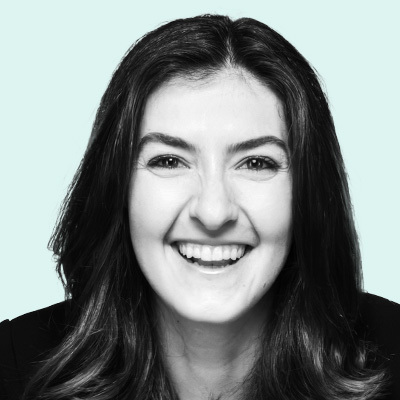Good morning!
Hello from Riyadh, where I’m at the Fortune Global Forum. I’ll be moderating a few panels, including one on how to build a future-ready workforce. Follow along with our livestream here.
In other news, billionaire philanthropist Melinda French Gates recently announced that her investing and advocacy organization Pivotal is partnering with nonprofit the Aspen Institute to launch a $60 million grant competition. Why? To discover bold, future-of-work ideas that remove barriers women face in the workplace.
I chatted with Gates about this initiative via email. Her responses have been edited and condensed for clarity:
Fortune: Why did you launch this challenge? What are you hoping to come out of it?
French Gates: This year, the number of women in the workforce has fallen by 500,000, while the number of men rose by nearly 400,000. That statistic tells us something is very broken. We’ve built systems that aren’t working, and women are bearing the brunt of it. I believe that if we’re bold enough to rethink how work works—if we make it more flexible, more fair, more inclusive—then we’re not just helping women. We’re unlocking opportunity for everyone.
What are the biggest challenges we’re facing?
The world of work is being reinvented right before our eyes. AI is putting new power in people’s hands. Big companies are more profitable than ever, which in theory should lead to better outcomes for employees, but often doesn’t. Traditional employment models are being disrupted, and many careers are starting to look nothing like they used to.
There’s a lot of change happening very fast, and as I see it, every question about the future of work comes down to one: Will the opportunities created by these changes be open to everyone, or just benefit the people who are already in positions of power and privilege? For my part, I think they can be a force for progress, but it’s going to take a lot of action and effort.
What barriers are women facing in the workplace? What would you like to see change?
It’s very concerning to see so many women leaving the workforce—but if you’ve been listening all along to what women say about their careers, it’s not surprising. When we survey women to see what’s holding them back at work, they tell us about the impossible tradeoffs they’re forced to make to balance careers with caregiving responsibilities, especially given how expensive child care has become.
They tell us that even though #MeToo opened up important conversations, they still experience harassment at work. They tell us about facing outdated assumptions that they’re not cut out for leadership. And it’s simply a fact that if they try to launch businesses, they have a much harder time getting capital than men do.
What would I like to change? I want to see more women leading—making decisions, directing resources, and shaping policies at the highest levels of society. That requires us to make sure they’re not facing unique barriers along the way to positions of power.
Over time, people will see that having more women step into leadership doesn’t hold back anyone else. It actually helps move everyone forward.
You’ve often spoken about systemic change vs. quick fixes. How do you make sure a $60 million challenge leads to structural change in workplaces, not just surface-level interventions?
If you look at what we’re asking of applicants, you’ll see one word again and again: scale. That’s because we hope to find ideas with the power to grow and create lasting change.
Not everything we try will succeed—and that’s okay. That’s part of the process. Philanthropy gives us the space to test different approaches, see what really makes a difference, and let go of what doesn’t. Every lesson will help us get closer to workplaces that work for everyone.
What gives you hope right now about the future of women at work, even amid sobering statistics?
When I was growing up, I barely knew any women who worked outside the home. My dad, an aerospace engineer working on the Apollo missions, would often tell me how much better his team was because it included women—but I always knew that diverse teams were the exception and not the norm.
That’s not the world my granddaughters live in. That’s not the world my daughters live in. One’s a pediatrician, and one’s an entrepreneur. They grew up seeing so many different archetypes of women working at the highest levels.
Of course we’re not at gender parity in our country yet, but we’ve come really far—and that’s exactly why I believe we can go even further. While the status quo is powerful, so are the people who refuse to accept it.
Kristin Stoller
Editorial Director, Fortune Live Media
kristin.stoller@fortune.com
Around the Table
A round-up of the most important HR headlines.
Citing stress and burnout, Gen Z is rejecting the state of “workplace emergency” in favor of work-life balance boundaries. Washington Post
Employees at some of Silicon Valley’s biggest AI labs are regularly working 80 to 100 hours a week to win the tech arms race. Wall Street Journal
Many professionals with DEI experience on their resumes are struggling to find work in the current job market. Bloomberg
Watercooler
Everything you need to know from Fortune.
Insurance squeeze. U.S. employers and workers are facing the steepest run-up in health insurance costs in years, with average family premiums nearing $27,000. —Ashley Lutz
Rising tensions. Author and researcher Brené Brown warns American workers are not neurologically wired for this current level of rapid change and instability—and they’re “not okay,” she says. —Emma Burleigh
Role reshaping. Leaked documents show OpenAI is planning to automate away entry-level tasks in finance—but experts say AI won’t replace those roles completely. —Nino Paoli













